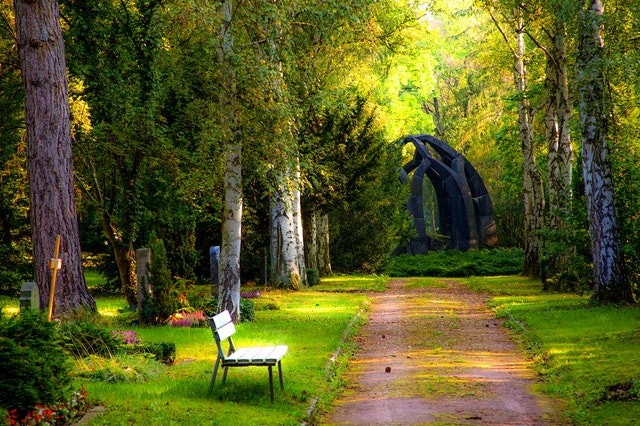According to a new study, having entry to a green open space or garden during a pandemic can boost your mental health while isolated or in lockdown. The green space makes available a 'place to create connections with nature, be agile and interact' while under the restrictions of lockdown, according to researchers.

Better Health and Wellbeing
During the lockdown in March 2020, the team from the University of Cardiff observed 5,556 people around their neighborhood and home, and also their mental health. They discovered that people that have green space on their doorstep or access to a private garden reported having better wellbeing and health during and after the initial lockdown.
Those that have a garden or park close by were more likely to say they were feeling peaceful, calm, and had much energy as compared to those that have no green space. The researchers say their discoveries highlight the huge importance of green space for both mental and physical health, and making communities more buoyant.
Connection With Nature
Dr. Rhiannon Phillips, Co-author from Cardiff Metropolitan University, said green spaces create a place to 'have a connection with nature, be agile and interact.' This has made time spending in public green spaces and private gardens essential to decreasing the impact of the pandemic on the health and wellbeing of people.
'Figures reveal that one in eight households in the UK does not have access to a garden during the pandemic, and a quarter inhabits within a five-minute stroll of a public park. People were observed in the study at two intervals - the first in March 2020 during the initial peak, and again in June 2020 after the initial peak had eased up.
COVID-19 Public Experiences (COPE)
For the first 2-3 months of the lockdown, people were only allowed to leave their homes for crucial travel, like daily outdoor exercise and food shopping. The observation brought about part of the COVID-19 Public Experiences (COPE) study, with most members recruited through Health Wise Wales (HWW), an existing national longitudinal study sponsored by the Welsh Government.
Among a wide range of subject matters, members were specially asked if they felt peaceful and calm and had much energy, or if they felt blue and downhearted. Responses were provided on a scale of zero to five for both mental health and questions related to general wellbeing and health.

Subjective Wellbeing
The members were asked also about their access to a private garden and how far they inhabit from the closest green space, like woodland, playing field or park. Subjective wellbeing was revealed to be notably higher in the after-peak period when restrictions of lockdown were being relieved than in the initial peak.
People that lived over a five-minute walk from a public green space had a decreased level of subjective well-being than those that lived less than five minutes away.
Related Article : 4 Reasons That'll Make You Want to Get Down and Dirty in the Garden
For more news, updates about mental wellbeing and similar topics don't forget to follow Nature World News!
© 2025 NatureWorldNews.com All rights reserved. Do not reproduce without permission.





